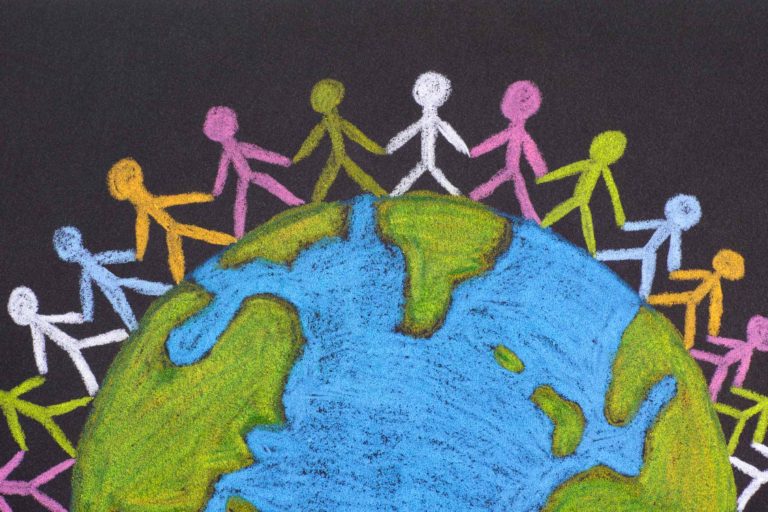
Children, regardless of their age, can start learning about diversity when parents start encouraging family conversations about diversity and begin investing in cultural awareness.
Learning about other cultures not only teaches kids to respect others, but it gives them an appreciation for their own unique background.
Here are some tips to help get diversity conversations started.
Use Kind and Compassionate Words
Even statements that seem harmless, like “boys have cooties,” could lead to exclusion. It’s important to refrain from categorize people and to be aware of our words and nonverbal behaviors concerning those different than us.
When you teach kids to understand and be kind to people different than them, you are teaching them a level of respect that they will carry for the rest of their lives.
Make Cultural Conversations Age-Appropriate.
For young children visuals are often helpful. Read books about other cultures, have dolls or figurines of all skin colors, watch movies that are set in other parts of the world, have a globe or world map available so you can show them different places.
Older children and teens can be engaged in conversation simply by asking them what they think about different cultures including topics such as food, fashion, dating and world events. Encourage them to attend local cultural festivals or exhibits. Normalizing diversity is the first step to helping children feel comfortable.
Answer Questions Openly and Honestly
No matter what age they are, kids will undoubtedly have a million questions about, well, everything. When they ask about different cultural practices or differences in physical appearance, explain these differences with an open mind and in an informative way as you can for their age and level of understanding. Don’t be afraid to head to the computer to learn the answer, either. Allow it to be an opportunity to show your children that the things that make us different are the things that make us special.
Set a Good Example
Being a good role model to your child is the best way you can promote diversity awareness. Examine your own beliefs and behaviors. Work to have a diverse group of family friends. Celebrate similarities and differences within people. Raising culturally diverse children is a step toward uniting our country and the world for future generations.
The information and content on our website should not be used as a substitute for medical treatment or advice from your doctor.




